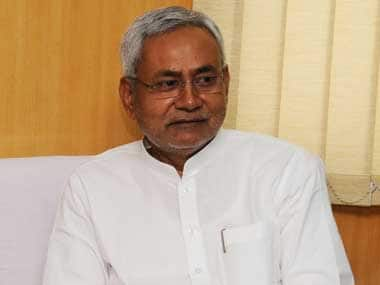There is a definitely a strong wind of change blowing in Bihar. And this wind is blowing from the west. With the poll schedule for the Lok Sabha elections already announced today, Bihar Chief Minister Nitish Kumar will be increasingly uneasy. Reason: his bete noire Narendra Modi is far ahead in this race. The break-up of Kumar’s JD(U) and the BJP is costing the Bihar Chief Minister dearly. The Lokniti-CNN-IBN National Election Tracker survey conducted in January and February 2014 in Bihar found that Modi is way up with 41 percent as a prime ministerial choice against Kumar’s 14 percent, although he is the Number 2 choice. These figures are from last month where the sample size was 1,316. The sample size in January was 1,317. Political pundits believe that Kumar now stands to lose more by making his competition with Modi more personal rather than political. [caption id=“attachment_1420757” align=“alignleft” width=“380”]  Bihar Chief Minister Nitish Kumar. Image courtesy PIB[/caption] In a direct faceoff between Modi and Kumar, Muslims emerge as the latter’s strongest supporters, with 55 percent backing him agqinst just 18 percent for Modi. Among Kurmi-Koeris, Kumar’s own community, the fight is even with 44 in favour of Kumar and 43 in favour of Modi. Among Dalits, Modi has the edge with 39 percent versus Kumar’s 31 percent. Overall, in a direct faceoff, Modi wins 48 percent against Kumar’s 32 percent. According to the survey, the Modi effect in Bihar is not based on the personality alone but also on the party. The fact that Modi belongs to a national party also firmed up his case vis-a-vis Kumar. The study revealed that while 43 percent of the pro-Modi votes are because of the BJP, another 23 percent supported him for being the BJP’s prime ministerial candidate. A comparison between the January-February figures points to the fact that the persona of Modi is increasingly attracting more votes. Some cold comfort for Kumar is that there is an increase in satisfaction among respondents with the performance of the government in Bihar. The February figure shows 73 percent of the sample satisfied with the state government compared to 59 percent in January. This, however, hardly reflects in the national scenario. Significantly, the dislike for the UPA government at the Centre has also come down from 77 percent in January to 45 percent in February. The satisfaction with the Central government also jumped from 17 percent to 49 percent within this period in the state. This swing of statistics perhaps provides an indication that the respondents hoped that Bihar might be accorded special status just before the Code of Conduct sets in. The breaking of ties between the BJP and JD(U) has undoubtedly changed the political course in Bihar. Although 35 percent of the respondents blame both the parties equally for the separation, it is Kumar who is likely to bear the brunt of the snapped ties unless he spins out a remarkable political revival to change his fortune.
The fabled Narendra Modi-Nitish Kumar fight to become India’s next prime minister is soon turning out to be an one-sided affair.
Advertisement
End of Article


)
)
)
)
)
)
)
)
)



